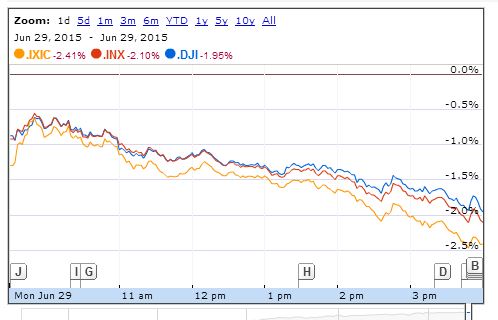A 'chain-reaction', as you describe it, seems like a very plausible possibility at the moment. As strange as it may sound, there is actually quite a lot of panic in the streets of Athens right now. Not only is it unclear where Greece is heading, but there are possibilities as far-out as the current government getting dissolved.
Let there be no doubt that it will have far-reaching consequences. The Eurozone is currently giving Greece a serious side-eye. No one is quite sure about the extent to which Greece's exit could hurt them.
What this, in turn, means is that the European economy could come to a grinding standstill. There is no saying how far the Eurozone could go to protect their currency. They already have a watchful eye on the stock markets and within the first sight of a looming disaster, they could shut down all trade and try their level-best to ensure that no money leaves the Eurozone. This could mean temporary trade barriers and a big no-no to business outsourcing.
I firmly believe that the Euro is resilient enough to stabilise itself again in due time. However, most investors would prefer to sit on their money until then.
There are, of course, other factors involved as well. Greece could, for instance, increase import tariffs and do away with its liberal policies until the local economy is strengthened and can stand on its feet.

